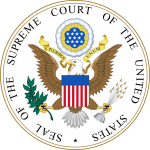 The United States Supreme Court yesterday settled the question of whether the Equal Employment Opportunity Commision’s statutory duty to conciliate a remedy to a Title VII violation prior to filing a lawsuit is subject to some level of judicial review. The decision was unanimous and the answer is – yes, the EEOC’s actions are subject to a “narrow” judicial review.
The United States Supreme Court yesterday settled the question of whether the Equal Employment Opportunity Commision’s statutory duty to conciliate a remedy to a Title VII violation prior to filing a lawsuit is subject to some level of judicial review. The decision was unanimous and the answer is – yes, the EEOC’s actions are subject to a “narrow” judicial review.
The Supreme Court Decision
The Supreme Court had granted review to decide the issue of “Whether and to what extent may a court enforce the EEOC’s mandatory duty to conciliate discrimination claims before filing suit?”
Under the law, the EEOC is required to “conciliate” cases after having found “reasonable cause” that a violation of the law has occurred before it files a lawsuit against the employer. Significantly, the language of Title VII specifically requires the EEOC to “endeavor to eliminate” alleged discrimination by “informal methods of conference, conciliation, and persuasion.”
In the Mach Mining case, the EEOC sued the company for sex discrimination on behalf of a class of women who were denied jobs. Mach Mining accused the EEOC of filing the lawsuit before attempting to conciliate in “good faith” and a battle then ensued over whether the EEOC has complete discretion on conciliation, or whether its conduct should be reviewed by a court.
EEOC’s Position: The EEOC’s position in that battle has been that the courts have no right at all to review the EEOC’s conciliation efforts. In the alternative, the EEOC argued that should there be some level of judicial review that it would be limited to confirming that (1) the EEOC had notified the employer of its reasonable-cause determination in a letter inviting the employer to conciliate the charge; and (2) the EEOC had subsequently sent a letter to the employer advising it that conciliation had failed. As such, any judicial review would be limited to confirming the existence of those two letters.
Mach Mining’s Position: Mach Mining argued that although courts should be deferential to the EEOC that judicial review should consist of more than confirming the existence of two letters and that con. Mach Mining insisted that the EEOC’s “conference, conciliation, and persuasion” must be done in good faith, and subject to court review.
Supreme Court’s Holding: The Supreme Court rejected the arguments of both the EEOC and Mach Mining holding that the EEOC’s conciliation efforts are subject to a narrow review but that there is no requirement that the EEOC engage in those efforts in “good faith.”
Reactions from Plaintiffs’ Attorneys
The plaintiffs’ bar sees the decision as a win for the EEOC and employees. In fact, Atlanta, Georgia attorney Matthew Billips says “the Court got this one completely right.” According to Billips, “good faith negotiation doesn’t work when only one side is required to do it” and since employers are under no obligation to negotiate, much less negotiate in good faith” it would be unfair to “impose a one-sided duty on the EEOC.”
Paul W. Mollica, an attorney in the Chicago office of Outten & Golden says that the “decision abrogates a line of case authority which for years sanctioned searching discovery and judicial second-guessing about EEOC conciliation efforts” and “restores the balance that Congress intended in Title VII of the Civil Rights Act, to reward collaborative behavior.”
Donna Ballman (a Florida attorney who wrote Stand Up For Yourself Without Getting Fired and represents employees) says the Supreme Court’s decision “makes perfect sense, since there is absolutely no realistic way for a court to decide if one party is being unreasonable in a settlement discussion. While EEOC has to try to get the employer to voluntarily comply with the law, the courts are not going to tell it how to accomplish that. Frankly, it’s the employers who should be really glad that the Supreme Court didn’t order EEOC to get more forceful with scofflaw employers, and it’s taxpayers and employees who lose out when employers fail to conciliate reasonably.”
Reactions from Defense Attorneys
Although the Supreme Court’s decision was a compromise between the EEOC’s argument and the employer’s position, the defense bar views the decision as being a win for employees. Fisher & Phillips (a national law firm with 300 attorneys and 30 offices) cautions that “the decision frees the EEOC to continue its use of inflexible and frequently unreasonable demands accompanied by the threat of the EEOC’s aggressive litigation tactics and tremendous resources to force employers into settling claims. Employers will now only obtain relief against these tactics by taking cases to judgment and seeking attorneys’ fees, a costly and hardly palatable proposition.”

Atlanta, Georgia attorney Matthew Billips says “the Court got this one completely right.” But it marked a compromise between the EEOC and the company.
Agree with Pamela.